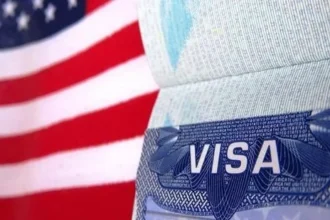One of the most crucial steps in the U.S. family-based immigration process is satisfying the financial sponsorship obligations through the Affidavit of Support, officially known as Form I-864. This form must be submitted to the National Visa Center (NVC) to demonstrate that the intending immigrant has adequate financial backing and will not become a public charge. The NVC plays a central role in collecting and processing the necessary documents before the immigrant visa interview is scheduled at a U.S. consulate or embassy abroad. This article provides a comprehensive guide to understanding the NVC Affidavit of Support requirements, what documentation is needed, who qualifies as a sponsor or joint sponsor, how to calculate income and household size, common pitfalls, and how to navigate the entire process efficiently.
What Is the Affidavit of Support and Why It Matters
The Affidavit of Support (Form I-864) is a legally enforceable contract between the U.S. government and a petitioner or sponsor, ensuring that the immigrant being sponsored will not become a public charge. Under the Immigration and Nationality Act (INA) Section 213A, sponsors pledge to provide financial support if necessary, and the government can recover certain means-tested benefits from the sponsor if they are provided to the immigrant. This requirement applies to most family-based immigrants and some employment-based immigrants where a relative owns a majority interest in the petitioning business. Filing this form and supporting documentation with the NVC is necessary to move the immigrant visa application forward to the consulate stage.
When and Where to Submit the Affidavit of Support
Once the U.S. Citizenship and Immigration Services (USCIS) approves the immigrant petition (Form I-130), the case is transferred to the National Visa Center. The NVC will issue a case number and send a welcome letter instructing the petitioner and the intending immigrant to begin the visa pre-processing steps, including payment of fees and submission of the Affidavit of Support via the Consular Electronic Application Center (CEAC) portal at https://ceac.state.gov. The I-864 form, along with its required documentation, must be submitted online to the NVC as part of the Immigrant Visa Application (DS-260) process. Submitting incorrect or incomplete financial documents can delay visa issuance, interview scheduling, or even result in denial.
Who Needs to Submit an Affidavit of Support
The Affidavit of Support is required for most family-based immigrants, including spouses, parents, children, and siblings of U.S. citizens or lawful permanent residents (LPRs). The primary financial sponsor is usually the petitioner who filed the I-130 form. If the petitioning sponsor does not meet the income threshold, a joint sponsor or household member can file a separate Affidavit of Support (Form I-864 or I-864A). The sponsor must be:
- A U.S. citizen, U.S. national, or lawful permanent resident
- At least 18 years old
- Domiciled in the United States
- Willing to accept legal financial responsibility for the intending immigrant
Income Requirements and the Federal Poverty Guidelines
To qualify as a financial sponsor, your household income must be at least 125% of the Federal Poverty Guidelines for your household size, or 100% for active-duty military personnel sponsoring a spouse or child. The household size includes the sponsor, dependents, any immigrants previously sponsored (if the obligation is still active), and the intending immigrant. The Department of Health and Human Services (HHS) updates the Poverty Guidelines annually, and the current figures can be found on the USCIS website at https://www.uscis.gov/i-864p. For example, in 2025, the 125% guideline for a household of 4 is approximately $39,000. If the petitioner’s income falls below this threshold, a joint sponsor or assets can be used to meet the requirement.
Documentation Required with Form I-864
When submitting Form I-864 to the NVC, the sponsor must upload supporting documentation that proves their income, employment, and tax history. These documents must be in English or include a certified translation. Required documents include:
- A copy of the sponsor’s most recent U.S. federal income tax return (Form 1040) and W-2s or 1099s
- IRS tax transcripts, which are often preferred over full returns, available at https://www.irs.gov/individuals/get-transcript
- Proof of current employment or income (such as recent pay stubs, a letter from employer)
- Evidence of lawful permanent resident status or U.S. citizenship (birth certificate, naturalization certificate, or green card)
- If using assets, documentation showing bank balances, real estate holdings, or other liquid assets
For joint sponsors or household members using Form I-864A, similar documentation is required to demonstrate financial capacity and relationship to the main sponsor.
Using Assets to Qualify
If the sponsor does not meet the income threshold based on salary alone, they can use assets to make up the shortfall. Acceptable assets must be readily convertible to cash within one year and include:
- Bank accounts and savings
- Stocks and bonds
- Real estate equity
- Cash surrender value of life insurance
The total value of assets must equal at least five times the income shortfall unless the intending immigrant is the spouse or child of a U.S. citizen, in which case the multiplier is three times. For orphans adopted abroad, the multiplier is one.
Example: If your income is $5,000 short of the requirement and you’re sponsoring your brother, you need $25,000 in qualified assets (5 x $5,000).
Domicile Requirement and Overseas Sponsors
Sponsors must be domiciled in the United States, meaning they must maintain a principal residence in the U.S. Sponsors living abroad may still qualify if they can demonstrate that they intend to reestablish domicile in the U.S. before the immigrant enters. Evidence can include:
- Lease agreements or property purchases
- Job offers in the U.S.
- Letters of resignation from foreign employment
- Plans for U.S. relocation
This is especially relevant for military or expatriate sponsors and must be clearly documented in the Affidavit of Support.
Joint Sponsors and Household Members
When the primary sponsor does not meet the income threshold, a joint sponsor can step in. A joint sponsor must meet all the same requirements (age, status, domicile) and file a separate Form I-864. Only two joint sponsors may be used per case, and each must independently meet the income requirement for the sponsored immigrant(s). Household members can also contribute income if they reside at the same address as the sponsor and file Form I-864A, which is a contract between the sponsor and household member.
Examples of acceptable household members include:
- Spouse or adult children of the sponsor
- Relatives living in the same household
- Persons listed as dependents on the sponsor’s tax return
Common Mistakes to Avoid
Many Affidavit of Support submissions are rejected or delayed due to common errors. These include:
- Failing to sign the I-864 or using outdated forms
- Incomplete tax documentation or missing W-2s
- Underreporting household size
- Incorrect calculation of income
- Submitting foreign tax returns instead of U.S. returns (if applicable)
- Not translating foreign documents
- Confusing the I-864 with other support forms like I-134 (used for nonimmigrant visas)
Always double-check the requirements listed in the NVC’s online CEAC portal and refer to the official USCIS instructions.
What Happens After Submission
Once submitted via CEAC, the NVC reviews the Affidavit of Support and supporting documents for completeness and compliance. If additional information is required, the NVC will issue a checklist or “Documentarily Qualified” notice. Only after the Affidavit is approved will the case be scheduled for an interview at a U.S. embassy or consulate. A consular officer will review the financial documents at the visa interview and may ask questions about the sponsor’s income, relationship to the immigrant, or tax history. If the consular officer determines that the sponsor is unable to meet the requirements, the visa may be refused under INA 221(g) pending submission of a valid I-864.
Duration and Legal Obligation of Sponsorship
Signing Form I-864 is not just a formality—it’s a legally binding contract. The sponsor’s obligation continues until:
- The immigrant becomes a U.S. citizen
- The immigrant has worked 40 quarters (approximately 10 years) in the U.S.
- The immigrant leaves the U.S. permanently
- The immigrant dies
- The sponsor dies
Even divorce does not terminate the sponsorship obligation. Sponsors can be held liable for reimbursing the government for any means-tested public benefits provided to the immigrant, including Medicaid or Supplemental Security Income (SSI).
Alternatives and Special Situations
Some family-based immigrants may not require an I-864. Examples include:
- Self-petitioning widows/widowers or battered spouses under the Violence Against Women Act (VAWA)
- Children adopted by U.S. citizens who satisfy certain requirements under the Hague Convention
- Immigrants with significant personal income or work history in the U.S.
In these cases, Form I-864W may be used to request exemption from the Affidavit of Support requirement. More on exemptions can be found at https://www.uscis.gov/i-864w.
Tips for a Successful NVC Affidavit Submission
- Start early: Collect tax and employment documents ahead of time
- Use the IRS transcript instead of scanning long tax returns
- Ensure all income is well-documented with current pay stubs or employment letters
- Update the CEAC portal with accurate household member details
- If income is borderline, consider adding a joint sponsor early
- Review the latest poverty guidelines before submission
- Consult with an immigration attorney if your case involves complexities like overseas domicile or inconsistent tax filings
Conclusion
The NVC Affidavit of Support process is a cornerstone of U.S. family-based immigration, ensuring that sponsored immigrants will not become a public charge. While the process may seem overwhelming, understanding the requirements, preparing accurate documentation, and using available resources can ensure a smooth journey toward visa issuance. Whether you’re a sponsor filing for a spouse, child, parent, or sibling, the I-864 is your pledge to support your loved one—and doing it right the first time can significantly reduce delays. For more guidance, consult the State Department’s NVC Affidavit of Support page or speak with a qualified immigration attorney for tailored support.



